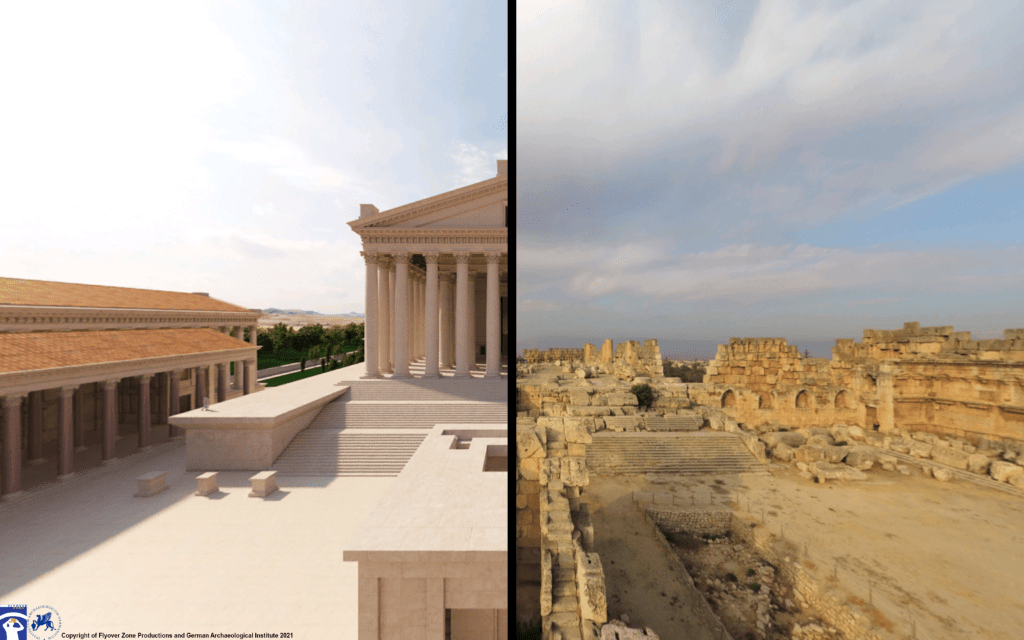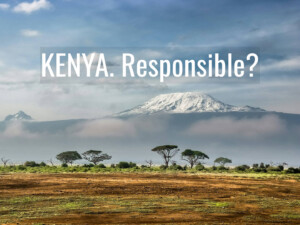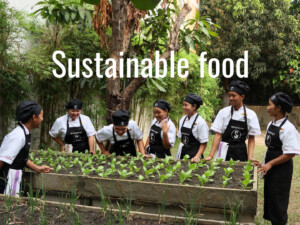How virtual tourism can make the travel & tourism industry more sustainable

Many people think that virtual tourism is a temporary hype; an activity that will quickly fade away as physical travel resumes post-pandemic. But, according to tourism expert and educator Hayley Stainton, virtual tourism is here to stay and it can help to create a more sustainable industry. It’s a “Good Tourism” Insight.
[Thanks to Jim Butcher for inviting Dr Stainton to write a “GT” Insight.]
The pandemic has seen the world rapidly become more digitalised. People have adapted to life in front of their computer screens, and our work and social lives have undertaken irreversible changes. In the tourism arena, we have seen many organisations move their operations online in attempt to make up for a devastating loss of income.
Many people view this move online as a temporary measure. While it can be great fun to be guided around a tourist attraction via a computer screen or mobile phone, it is no alternative for the act of travelling itself.
And they are right. Mostly.
Virtual tours are almost certainly a temporary product offering for many companies. However, I contend that virtual tourism is here to stay; will grow despite the pending rebirth of the travel industry; and will be a valuable tool for not only marketing destinations and attractions, but also promoting sustainable tourism and responsible travel.
Yes, ‘Zoom fatigue’ may cause a temporary decline in interest in virtual experiences, but once life has returned to some form of normality, virtual tourism will become an integral part of the pre- and post-holiday experience. Whether it’s a ‘try before you buy’ necessity or a ‘share my holiday experience with grandma upon my return’ type of experience, virtual tourism isn’t going anywhere. In fact, it is set to grow and to evolve considerably.
What is virtual tourism?
The majority (98%) of companies now offering virtual tours use simple tools, including video apps like Zoom and platforms like YouTube. However, virtual tourism is actually a far more complex and technologically-advanced sector than most people realise.
Virtual tourism covers a broad spectrum of digitally-mediated reality, which includes virtual reality, mixed reality, and augmented reality. There is a growing virtual tourism technology marketplace, where innovations can, and should, be used for the greater good.
Flyover Zone, with whom I work, is a virtual tourism organisation with a team of academics, digital archaeologists, and software developers at its core. That’s why it’s a leader in the emerging field. Their digital reconstructions of ancient historical sites are attractive not only to tourists, but also to students, and to those who want to learn more.

Virtual tourism technologies can be used for a number of purposes, most notably the marketing of tourism destinations and attractions to prospective travellers. And there is vast scope for it to be used in other contexts, such as educating stakeholders on how to take more responsibility.
Virtual tourism as a sustainability teaching tool
Education is a key notion that is ingrained within the concept of sustainable tourism. In order to create and maintain a sustainable industry, stakeholders must be educated in the relevant fields. And tourists should be taught why not to step off of the main trail, why not to feed the monkeys, or why they should dress respectfully in an unfamiliar culture, to name but a few examples.
Also see Ivana Damnjanović’s “GT” Insight
“Travel, stories, education: The keys to happiness?”
It is clear to me that sustainable tourism education can be facilitated through the use of virtual tourism tools. For example, an airline could offer a short interactive experience en route to a destination during which a passenger might learn how to be a responsible visitor. Tour operators and travel agents could send out links to virtual tours to prepare their clients for what to expect (and what is expected of them). Governments could incorporate sustainability and cultural education into virtual tourism training curricula as well as interactive destination marketing campaigns.
There is huge potential for the virtual tourism industry to be a key player in sustainable tourism education. It will be fascinating to see how this evolves in the coming months and years.
Virtual tourism isn’t going to disappear post-pandemic. It is simply going to get more serious. As travel & tourism IRL (in real life) recovers, the scramble to make up for revenue losses will ease, making way for the serious and innovative virtual tourism players to lead the sector forward.
What do you think? Share a short anecdote or comment below. Or write a deeper “GT” Insight. The “Good Tourism” Blog welcomes diversity of opinion and perspective about travel & tourism because travel & tourism is everyone’s business.
Featured image (top of post): Digital world image by Comfreak (CC0) via Pixabay. VR outline by sy (CC0) via Pixabay.
About the author

Hayley Stainton is a tourism academic and travel writer. She shares her practical, conceptual, and theoretical knowledge of the tourism industry through her website, Tourism Teacher. Dr Stainton is working with the team at Flyover Zone to develop their virtual tourism provision. As evidenced by this “GT” Insight, she has become fascinated in the future applications of virtual tourism and its implications for the rest of the sector.





